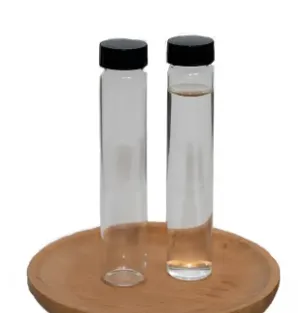Warning: Undefined array key "title" in /home/www/wwwroot/HTML/www.exportstart.com/wp-content/themes/1198/header.php on line 6
Warning: Undefined array key "file" in /home/www/wwwroot/HTML/www.exportstart.com/wp-content/themes/1198/header.php on line 7
Warning: Undefined array key "title" in /home/www/wwwroot/HTML/www.exportstart.com/wp-content/themes/1198/header.php on line 7
Warning: Undefined array key "title" in /home/www/wwwroot/HTML/www.exportstart.com/wp-content/themes/1198/header.php on line 7
- Afrikaans
- Albanian
- Amharic
- Arabic
- Armenian
- Azerbaijani
- Basque
- Belarusian
- Bengali
- Bosnian
- Bulgarian
- Catalan
- Cebuano
- China
- China (Taiwan)
- Corsican
- Croatian
- Czech
- Danish
- Dutch
- English
- Esperanto
- Estonian
- Finnish
- French
- Frisian
- Galician
- Georgian
- German
- Greek
- Gujarati
- Haitian Creole
- hausa
- hawaiian
- Hebrew
- Hindi
- Miao
- Hungarian
- Icelandic
- igbo
- Indonesian
- irish
- Italian
- Japanese
- Javanese
- Kannada
- kazakh
- Khmer
- Rwandese
- Korean
- Kurdish
- Kyrgyz
- Lao
- Latin
- Latvian
- Lithuanian
- Luxembourgish
- Macedonian
- Malgashi
- Malay
- Malayalam
- Maltese
- Maori
- Marathi
- Mongolian
- Myanmar
- Nepali
- Norwegian
- Norwegian
- Occitan
- Pashto
- Persian
- Polish
- Portuguese
- Punjabi
- Romanian
- Russian
- Samoan
- Scottish Gaelic
- Serbian
- Sesotho
- Shona
- Sindhi
- Sinhala
- Slovak
- Slovenian
- Somali
- Spanish
- Sundanese
- Swahili
- Swedish
- Tagalog
- Tajik
- Tamil
- Tatar
- Telugu
- Thai
- Turkish
- Turkmen
- Ukrainian
- Urdu
- Uighur
- Uzbek
- Vietnamese
- Welsh
- Bantu
- Yiddish
- Yoruba
- Zulu
Oct . 12, 2024 12:50 Back to list
monopropylene glycol e1520
Understanding Monopropylene Glycol (E1520) Uses, Safety, and Regulations
Monopropylene glycol, commonly referred to as E1520, is a synthetic organic compound categorized as a clear, odorless liquid. It is chemically distinct from its counterpart, dipropylene glycol, and is primarily produced through the hydration of propylene oxide. Renowned for its versatility, E1520 has found applications across various industries, particularly in food and pharmaceutical sectors.
Applications of Monopropylene Glycol
1. Food Industry E1520 is widely used as a food additive due to its properties as a humectant, solvent, and emulsifier. It helps retain moisture in food products, thereby extending shelf life and enhancing texture. Common food items that may contain E1520 include baked goods, salad dressings, and processed cheeses. Moreover, it acts as a carrier for flavors and colors, ensuring their uniform distribution throughout food matrices.
2. Pharmaceuticals In the pharmaceutical industry, monopropylene glycol is employed as a solvent for oral, injectable, and topical medications. It is particularly valued for its ability to dissolve a wide range of active ingredients, improving their bioavailability. Additionally, its low toxicity profile makes it an ideal choice for products intended for human consumption. E1520 also acts as a stabilizer and preservative in some formulations, enhancing the longevity and effectiveness of medicines.
3. Cosmetics and Personal Care Monopropylene glycol is a common ingredient in cosmetics and personal care products, such as lotions, creams, and shampoos. Its emollient properties allow it to help maintain skin hydration while improving the texture of formulations. Furthermore, it is often used to dissolve other ingredients, creating a more uniform and effective product.
4. Industrial Uses Beyond food and pharmaceuticals, E1520 is utilized in various industrial applications. It serves as an antifreeze agent in heating and cooling systems, aids in the formulation of paints and coatings, and is integral to the production of plasticizers and resins. Its ability to enhance the performance and stability of these products makes it a valuable component across multiple sectors.
monopropylene glycol e1520

Safety and Regulatory Status
Monopropylene glycol is generally recognized as safe (GRAS) by numerous health authorities worldwide, including the U.S. Food and Drug Administration (FDA) and the European Food Safety Authority (EFSA). When used in regulated amounts, it poses minimal risk to human health. However, like any substance, excessive consumption or exposure may lead to adverse effects, such as skin irritation or gastrointestinal discomfort.
In the European Union, E1520 is subject to specific regulations concerning its use in food and pharmaceuticals. These regulations dictate acceptable daily intake levels and ensure that its application does not compromise consumer safety. Manufacturers are required to follow stringent guidelines to maintain product quality and safety, ensuring that monopropylene glycol remains a reliable ingredient in various applications.
Conclusion
Monopropylene glycol (E1520) plays a crucial role in a multitude of industries, ranging from food and pharmaceuticals to cosmetics and industrial applications. Its advantageous properties as a humectant, solvent, and emulsifier contribute to its widespread utilization. As a safe and effective substance, E1520 has garnered the approval of various regulatory bodies, further solidifying its place in modern manufacturing processes.
As consumers become more knowledgeable about ingredients used in food and personal care products, transparency in labeling and safety information will remain paramount. Ongoing research into the potential applications and effects of monopropylene glycol can further enhance our understanding of this valuable compound, ensuring its responsible use across all sectors. Whether enhancing the flavor of a dish or improving the efficacy of a medication, E1520 continues to be an essential component in shaping today’s consumer products. As we move forward, a careful balance of safety and innovation will guide the future of monopropylene glycol in industry.
Latest news
-
Certifications for Vegetarian and Xanthan Gum Vegetarian
NewsJun.17,2025
-
Sustainability Trends Reshaping the SLES N70 Market
NewsJun.17,2025
-
Propylene Glycol Use in Vaccines: Balancing Function and Perception
NewsJun.17,2025
-
Petroleum Jelly in Skincare: Balancing Benefits and Backlash
NewsJun.17,2025
-
Energy Price Volatility and Ripple Effect on Caprolactam Markets
NewsJun.17,2025
-
Spectroscopic Techniques for Adipic Acid Molecular Weight
NewsJun.17,2025

